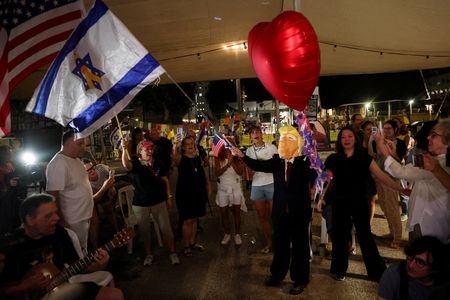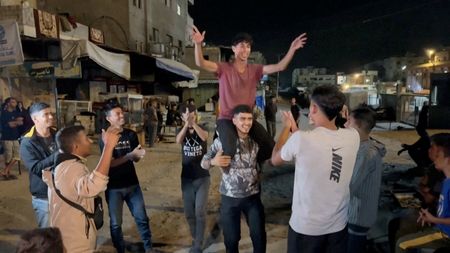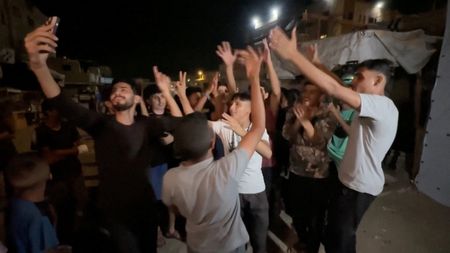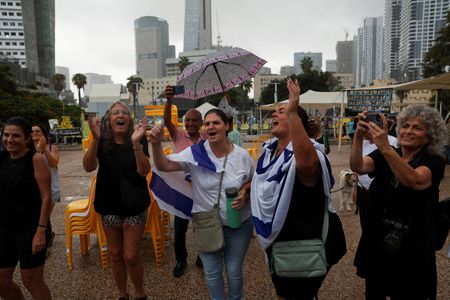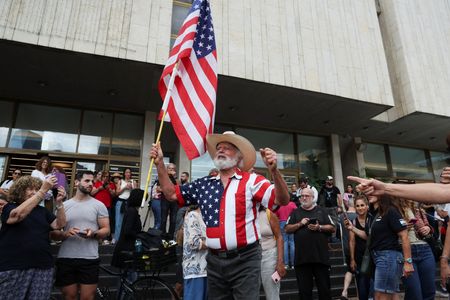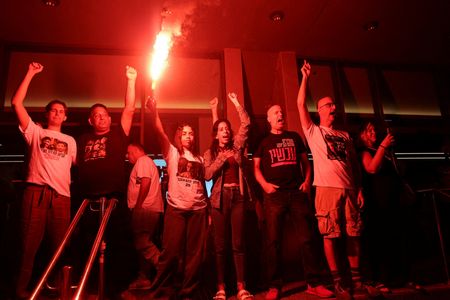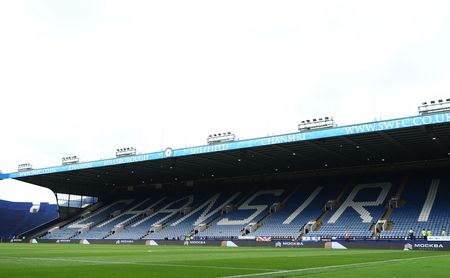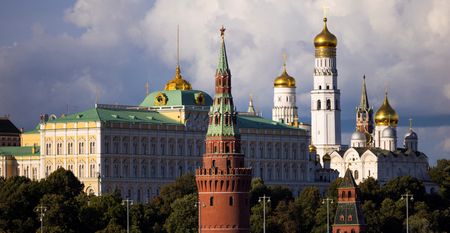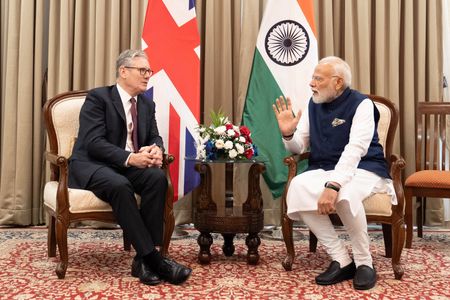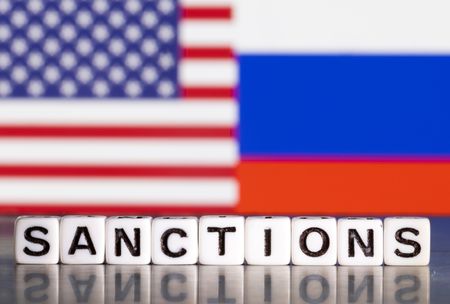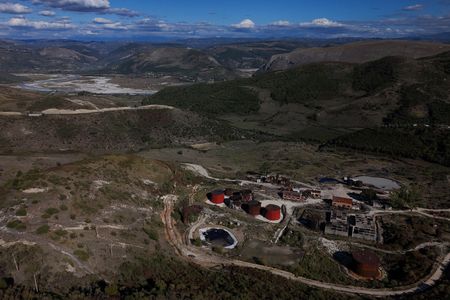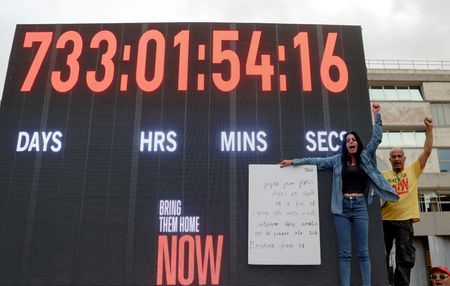KHAN YOUNIS, Gaza/TEL AVIV (Reuters) -Palestinians and the families of Israeli hostages broke into wild celebrations on Thursday after news of a pact between Israel and Hamas to end the war in Gaza and return home all the Israeli hostages, both living and dead.
In Gaza, where most of the more than 2 million people have been displaced by Israeli bombing, young men applauded in the devastated streets, even as Israeli strikes continued in some parts of the enclave.
“Thank God for the ceasefire, the end of bloodshed and killing,” said Abdul Majeed Abd Rabbo in Khan Younis in southern Gaza.
“I am not the only one happy, all of the Gaza Strip is happy, all the Arab people, all of the world is happy with the ceasefire and the end of bloodshed. Thank you and all the love to those who stood with us.”
In Tel Aviv’s so-called Hostages Square, where families of those seized in the Hamas attack that sparked the war two years ago have gathered to demand the return of loved ones, Einav Zaugauker, the mother of a hostage, was ecstatic.
“I can’t breathe, I can’t breathe, I can’t explain what I’m feeling … it’s crazy,” she said, speaking in the red glow of a celebratory flare.
“What do I say to him? What do I do? Hug and kiss him,” she added, referring to her son, Matan. “Just tell him that I love him, that’s it. And to see his eyes sink into mine … It’s overwhelming — this is the relief.”
Israel and Hamas agreed on Wednesday to the first phase of U.S. President Donald Trump’s plan for the Palestinian enclave, a ceasefire and hostage deal that could open the way to ending a bloody two-year-old war that has disrupted the Middle East.
“I have no words to describe it,” said former hostage Omer Shem-tov, when asked how the moment felt.
Just a day after the second anniversary of the cross-border attack by Hamas militants that triggered Israel’s devastating assault on Gaza, indirect talks in Egypt yielded a deal on the initial stage of Trump’s 20-point framework for peace.
‘COULDN’T STOP LAUGHING AND CRYING’
In Gaza, circles of young men in the streets applauded the news, one of them clapping as he was hoisted onto the shoulders of a friend.
People in the enclave wept and chanted, “Allahu Akbar” or “God is Greatest”, voicing hopes that the deal would end the war and let them return to their homes.
“I couldn’t stop laughing and crying,” said Tamer Al-Burai, a businessman displaced from Gaza City. “I can’t believe that we have survived.”
“We can’t wait to go back to our homes, even after they were destroyed, go back to Gaza City, sleep without the fear of being bombed, try to rebuild our lives,” he told Reuters via a chat app.
Others despaired about returning since Israeli forces will stay in the enclave for now.
“Our house was among the first to be destroyed, so even if the war is over, we will remain living in tents, maybe for years until they rebuild Gaza, that if the agreement holds,” Zakeya Rezik, 58, a mother of six.
While happy that none of her children was killed, she said their home was in a border area that would stay under occupation.
The media office of the Hamas-run Gaza government urged people not to return to home areas until the agreement was officially detailed, so as to stay out of areas Israel still controls.
The Israeli military also warned residents of northern Gaza not to return, saying on X that it remained a “dangerous combat zone”.
If fully adopted, the accord would bring the two sides closer than any prior effort to halt a regional war that drew in neighbours Iran, Lebanon and Yemen, deepened Israel’s international isolation and changed the Middle East.
Gaza authorities say more than 67,000 people have been killed and much of the enclave flattened since Israel began its military response to the Hamas attack on October 7, 2023.
About 1,200 people were killed and 251 were taken hostage back to Gaza, according to Israeli officials, with 20 of the 48 hostages still held believed to be alive.
“These are moments … long awaited by Palestinian citizens after two years of killing and genocide,” said Khaled Shaat, a Palestinian in the city of Khan Younis.
(Reporting by Nidal al-Mughrabi, Rami Amichay and Andreea Popescu; Writing by Clarence Fernandez; Editing by Raju Gopalakrishnan)

